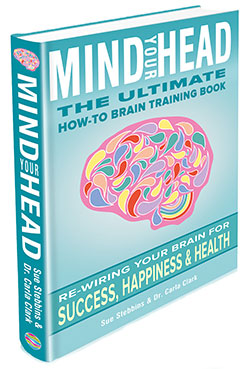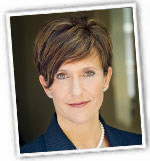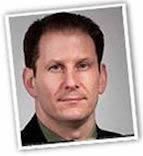Imagination inflation: Imagining a childhood event inflates confidence that it occurred
by Elizabeth Loftus
Page 1
Source: http://faculty.washington.edu/eloftus/Articles/Imagine.htm
Abstract
Counterfactual imaginings are known to have far reaching implications. In the present experiment, we ask if imagining events from one's past can affect memory for childhood events. We draw on the social psychology literature showing that imagining a future event increases the subjective likelihood that the event will occur. The concepts of cognitive availability and the source monitoring framework provide reasons to expect that imagination may inflate confidence that a childhood event occurred. However, people routinely produce myriad counterfactual imaginings (i.e., daydreams and fantasies) but usually do not confuse them with past experiences. To determine the effects of imagining a childhood event, we pretested subjects on how confident they were that a number of childhood events had happened, asked them to imagine some of those events, and then gathered new confidence measures. For each of the target items, imagination inflated confidence that the event had occurred in childhood. We discuss implications for situations in which imagination is used as an aid in searching for presumably lost memories.
People often imagine the past as being different from what it really was. Many investigators have argued that people spontaneously imagine alternatives to real events more in some settings than in others. These mental musings, called counterfactual thinking, have far reaching implications. They influence, for example, judgments of regret, perceived happiness, and causality (Kahneman & Tversky, 1982). For example, in one study subjects assigned more blame to an individual for a bad outcome when counterfactual thoughts--thoughts of what might have been done instead--would have undone the bad outcome ( Wells & Gavanski,1989). The question we ask here is whether these counterfactual imaginings also affect a person's memory for the past. For example, suppose you imagined stumbling on something in your house, and before you realize what is happening you've shattered a window with your hand. Would you later be more likely to claim that this unfortunate event had happened to you?
We already know, from the social psychology literature, that imagining a future event increases the subjective likelihood that the event will occur (Carroll, 1978; Gregory, Cialdini, & Carpenter,1982; Sherman, Cialdini, Schwartzman, & Reynolds, 1985). For example, consider Carroll's (1978) study on the power of imagination. Before the 1976 presidential election. subjects were asked to imagine either Carter or Ford winning the election. They were then asked to predict the outcome of the election using a scale from 0 (sure Carter will win ) to 100 (sure Ford will win). Subjects who imagined that Carter had won were more certain that he eventually would; similarly, those who imagined Ford had won were more certain that he would later win.
But imagination does not always have these consequences. One determining variable is the ease with which the event can be imagined. Sherman et al. (1985) asked subjects to imagine getting a disease whose symptoms were either easy or difficult to imagine. The ease with which subjects stated they could imagine the symptoms was tied to likelihood estimates: Those who judged the symptoms as easy to imagine also tended to estimate the disease as more likely to occur; those who thought the symptoms were difficult to imagine thought it less likely to occur. Sherman et al. suggested that easily imagined future events somehow become more ''available" in the sense pioneered by Tversky and Kahneman's (1973) research on judgment and decision making. Tversky and Kahneman proposed that when people are given uncertain conditions and asked to make outcome likelihood judgments, the more easily pictured outcomes are more "cognitively available," and seen as more likely. Put in different terms, the act of imagination may provide scaffolding. so that when subjects are tested, it is easier for them to build on this memorial framework. Perhaps if subjects imagined stumbling and shattering a window as a child, the event might also become more available, and subjects would become more confident that it had occurred.
Imagining a childhood event might also change memory for it by inducing source attribution errors (Johnson, 1988; Johnson, Hashtroudi, & Lindsay, 1993). Simply put, source attribution errors occur when information is remembered, but its source is remembered incorrectly or not remembered at all. Koehler (1991) argued explicitly that source attribution errors were partly responsible for the increased confidence in the probability of imagined future events. He noted that the mere act of imagining a scenario forces people to create an alternate reality for a short time and to fit the imagined facts into their existing knowledge of the world. The imagination procedure generates event information that subjects may remember, even if they don't remember the source of the information. Event information becomes more available, and therefore more plausible, subjects become more confident that the event will occur.
A similar line of argument leads us to predict that subjects will also become more confident that imagined past events had occurred. The rationale for this prediction is straightforward. Imagination will produce event information, and the event information may become more accessible, but its source may be forgotten or mis-remembered. When subjects are later tested, the availability might make the past event seem more plausible, and they might become more confident that the past event had actually occurred.
There is even reason to believe that source confusion might be especially acute for the very distant events of childhood. For example, Johnson, Foley, Suengas, and Raye (1988) asked subjects to think of actual or imagined personal events from either the recent past or childhood and then to rate these memories on 39 different characteristics. There were far fewer significant differences (3/39) between actual and imagined childhood events than for actual and imagined recent events (20/39). Put another way, both experienced and imagined childhood memories contain far fewer qualitative differences that can be used to distinguish between what actually happened from what was only imagined. Perhaps the act of imagining a childhood event generates only diffuse information about it, but if even genuine childhood memories contain similar information, subjects might not have a reliable way of distinguishing between childhood fact and fantasy. In short, the act of imagining may generate information whose source later becomes confused, resulting in a stronger belief that the imagined childhood event actually occurred. Thus, source monitoring research suggests why imagining a childhood window-shattering accident might promote greater confidence later that it actually occurred.
We Make it Easy to Succeed
Successwaves, Intl.
Brain Based Accelerated Success Audios
 |






